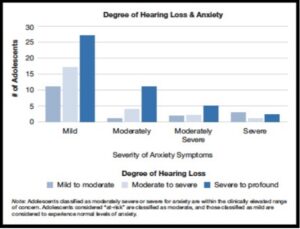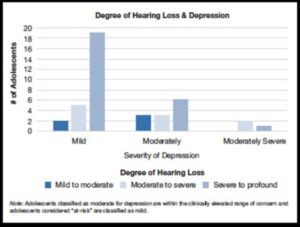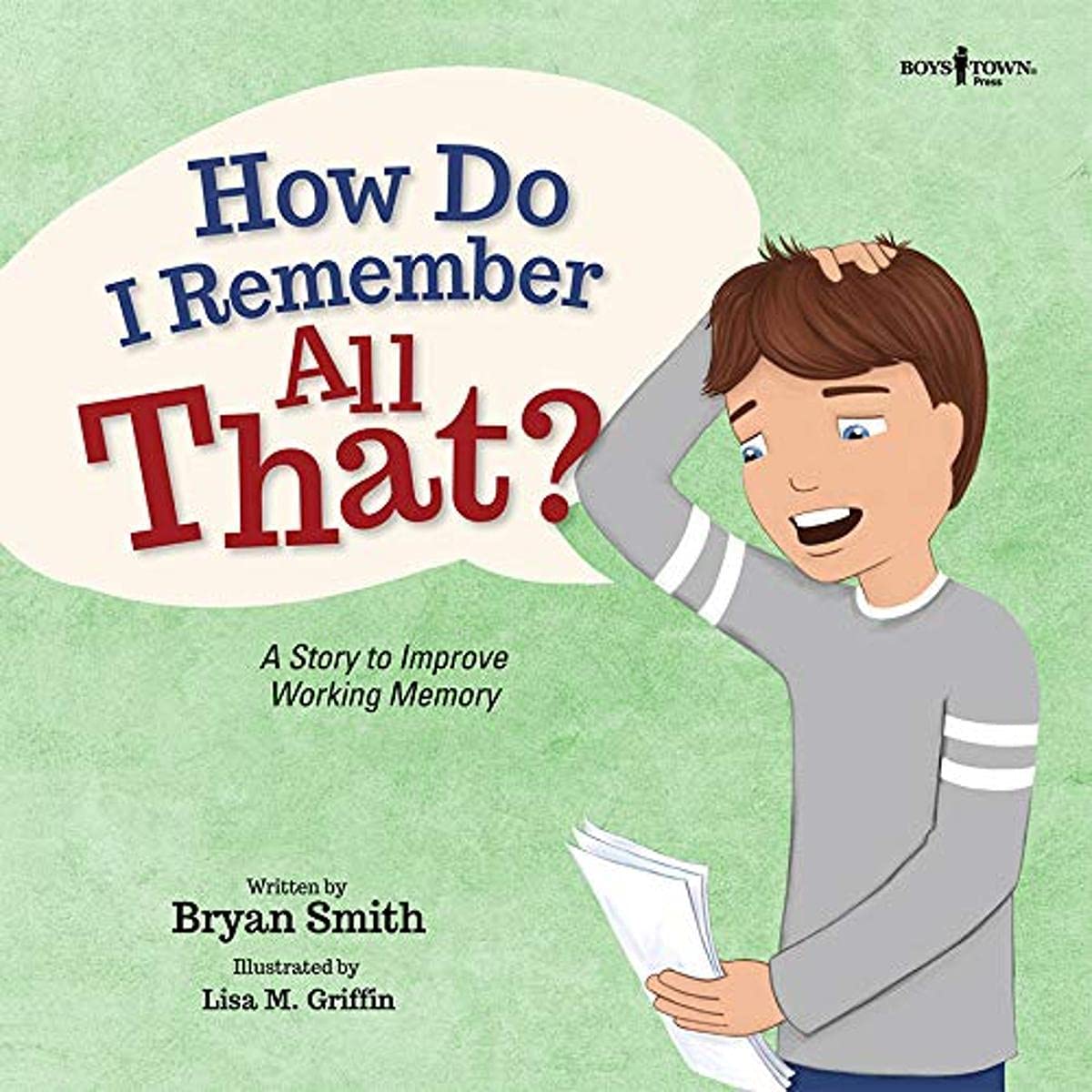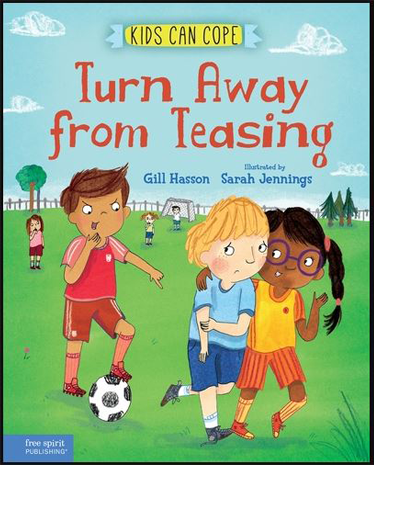Related Products
For Parents
Related Teacher Tools Takeout Items
Teens and the Price to Pass as ‘Normal’
 Starting middle school and high school represents a new start for many students. They may have been known as ‘the kid with hearing aids’ in elementary school. When they start secondary school the peer group broadens, and they have a chance to reinvent themselves. Too often, students with mild to moderate hearing loss take this opportunity to try to ‘pass as normal’ by not using hearing devices. This article will look at this phenomenon and how we can support these students during these transition times.
Starting middle school and high school represents a new start for many students. They may have been known as ‘the kid with hearing aids’ in elementary school. When they start secondary school the peer group broadens, and they have a chance to reinvent themselves. Too often, students with mild to moderate hearing loss take this opportunity to try to ‘pass as normal’ by not using hearing devices. This article will look at this phenomenon and how we can support these students during these transition times.
Are my clothes ‘cool’ enough? Will any boy like me? Will girls think I’m a dweeb? Worries like these are common for almost all teens as they enter middle school and/or high school. They want to both assert their independence to be seen as who they are, and to hide in the crowd so they won’t be seen as too different. It is a confusing time.
| Each is trying to reconcile “the person I am” and “the person society or my group expects me to become.” |
From approximately age 12-19 years children develop a strong affiliation and devotion to ideals, causes, and friends. They are concerned with how they appear to others. They establish this new sense of self by using past experiences to guide their anticipation of the future (i.e., successful integration with hearing peers vs. frequent teasing due to hearing differences). In their desire to ‘be more like the person my group expects me to become’ adolescents with hearing loss who have no other DHH peers, or successful DHH role models often feel that to be part of the group, they need to pass as normal hearing. We often see this result as ‘forgetting’, breaking, or refusing to use hearing devices. It may be refusal to use HAT in the classroom, or not wearing one or both hearing aids.
 At this stage students are working on how they integrate into society as a whole as an independent person, separate from family and established supports (like long time DHH support services). There are additional challenges to developing an identity when a person is a minority in a group – in this case having a hearing loss when peers are typically hearing. A higher rate of anxiety and depression as compared to hearing peers was revealed in a 2021 study1 that asked 104 individuals ages 12-18 attending otology clinic appointments to complete a survey to look at the association between mental health and hearing loss.
At this stage students are working on how they integrate into society as a whole as an independent person, separate from family and established supports (like long time DHH support services). There are additional challenges to developing an identity when a person is a minority in a group – in this case having a hearing loss when peers are typically hearing. A higher rate of anxiety and depression as compared to hearing peers was revealed in a 2021 study1 that asked 104 individuals ages 12-18 attending otology clinic appointments to complete a survey to look at the association between mental health and hearing loss.
Results of this study found that 25% of adolescents scored above the clinical cut-off for significant issues for anxiety or depression and 9% were found significant for both. More importantly, 30% scored in the at-risk range for depression and 21% scored in the at-risk range for anxiety.
Children with depression and/or anxiety are 7 times more likely to have accrued more than 2 weeks of school absences and are 3 times more likely to be non-compliant with recommendations like refusing use of hearing devices, which, as a result will negatively affect communication abilities, quality of life, speech understanding, and social interactions.
If we know that students with hearing loss are at much higher risk for anxiety and depression, what can we do?2
 Four types of integration in this case must be considered and facilitated:
Four types of integration in this case must be considered and facilitated:
a) Coming to feel like I belong to my peer group and immediate community
b) Coming to feel like I am an integrated part of the community of persons with hearing loss
c) Internally integrating how much I am like my peer group along with my differences
d) Coming out – or feeling okay with how I present myself as a person with hearing loss (disclosure)
Focus on all four of these components is necessary for the person to feel empowered and integrated into the hearing community as a person who is deaf or hard of hearing, along with integrating into the DHH community itself.
Early Skill Building Is Not Enough. Building resilience to teasing, skills at making friends, and developing perseverance in challenging communication situations will go far in helping ANY student to weather the travails of adolescence. Even with attention to these skills, the drive to ‘fit in’ is often so strong that the student with hearing loss feels he must reconcile who he knows he is (a student who has a hearing loss) with what he perceives his peer group wants him to be (someone who does not use hearing devices).
The greatest impact in this situation occurs when the student to comes to realize
1) he is not alone in having a hearing loss and facing these challenges, and
2) there are plenty of examples of successful people who have gone through what he is going through now.
Secondary schools pool student bodies from a number of elementary or middle schools. If a student was a ‘one and only’ in elementary, there may be a small number of DHH peers attending the same secondary school. For the sake of student mental health, continued device use, and resulting academic performance, it should become a high priority to get together secondary students. If this cannot be accomplished at the same building, then it should be pursued in an online format.
Suggestions for what to share in a group or discuss with individual teens:
Teacher Tools Takeout Subscribers have access to Kool Kidz Vidz to show, share, and discuss with one or more teens. Play A Wizard’s Challenge Game to get at what it feels like to be a ‘wizard’ in a world of ‘muggles’. Talk about How to Be Cool with the group. Teachers can read more about self-concept, strategies and assessment. Other items from Teacher Tools Takeout – search for Self-Concept or 0366, 0374, 0658.
- https://journals.lww.com/thehearingjournal/Fulltext/2021/04000/Understanding_Depression_and_Anxiety_in.5.aspx
- Building Self-Confidence & Resilience to Maximize Acceptance of Hearing Devices (book) https://teachertoolstakeout.com/0637-interpretation-assessment
Author: Karen L. Anderson, PhD
Click here to download this article



